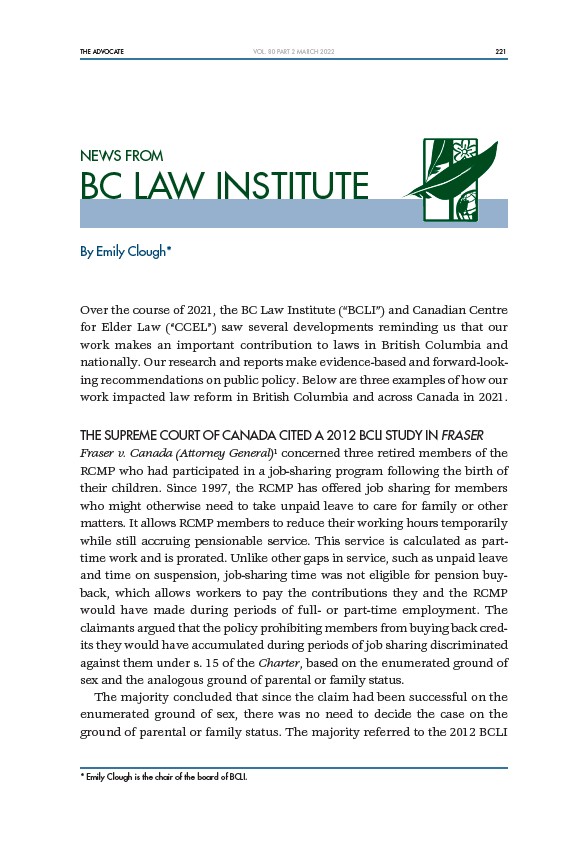
THE ADVOCATE 221
VOL. 80 PART 2 MARCH 2022
NEWS FROM
BC LAW INSTITUTE
By Emily Clough*
Over the course of 2021, the BC Law Institute (“BCLI”) and Canadian Centre
for Elder Law (“CCEL”) saw several developments reminding us that our
work makes an important contribution to laws in British Columbia and
nationally. Our research and reports make evidence-based and forward-looking
recommendations on public policy. Below are three examples of how our
work impacted law reform in British Columbia and across Canada in 2021.
THE SUPREME COURT OF CANADA CITED A 2012 BCLI STUDY IN FRASER
Fraser v. Canada (Attorney General)1 concerned three retired members of the
RCMP who had participated in a job-sharing program following the birth of
their children. Since 1997, the RCMP has offered job sharing for members
who might otherwise need to take unpaid leave to care for family or other
matters. It allows RCMP members to reduce their working hours temporarily
while still accruing pensionable service. This service is calculated as parttime
work and is prorated. Unlike other gaps in service, such as unpaid leave
and time on suspension, job-sharing time was not eligible for pension buyback,
which allows workers to pay the contributions they and the RCMP
would have made during periods of full- or part-time employment. The
claimants argued that the policy prohibiting members from buying back credits
they would have accumulated during periods of job sharing discriminated
against them under s. 15 of the Charter, based on the enumerated ground of
sex and the analogous ground of parental or family status.
The majority concluded that since the claim had been successful on the
enumerated ground of sex, there was no need to decide the case on the
ground of parental or family status. The majority referred to the 2012 BCLI
* Emily Clough is the chair of the board of BCLI.